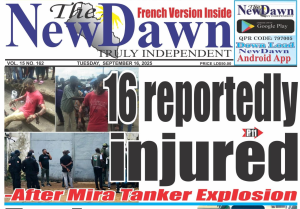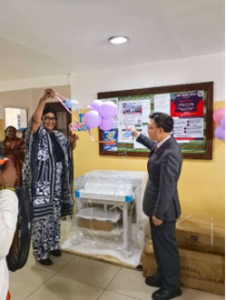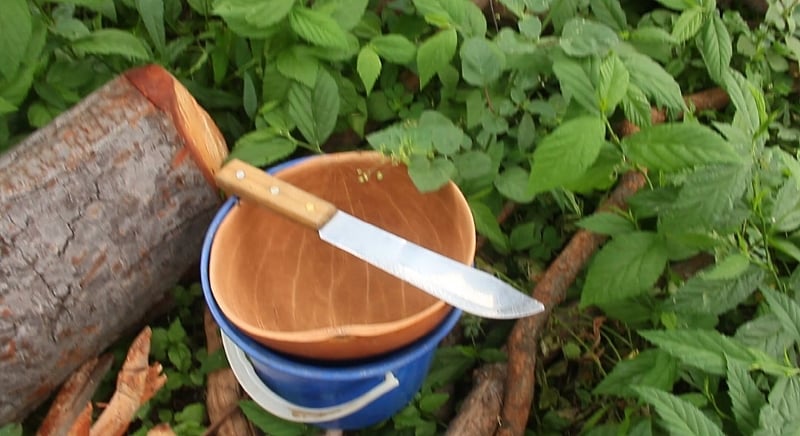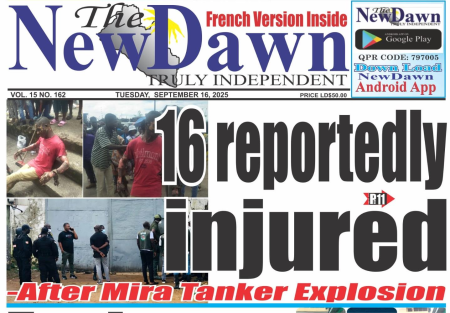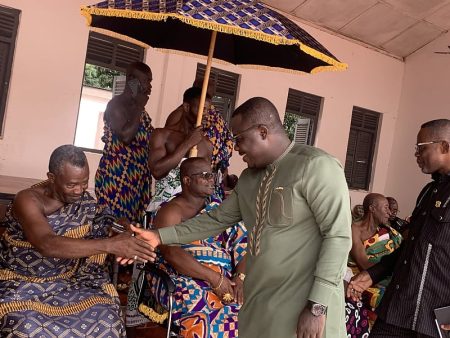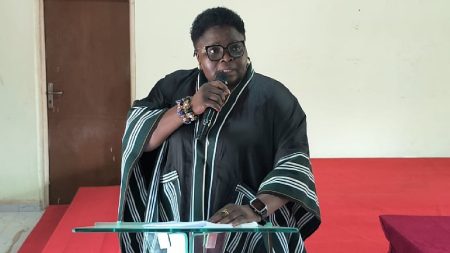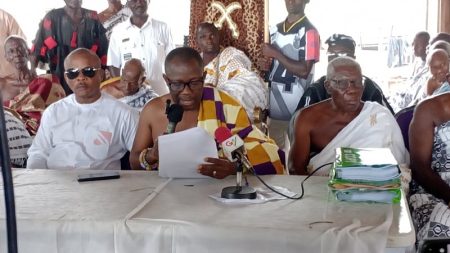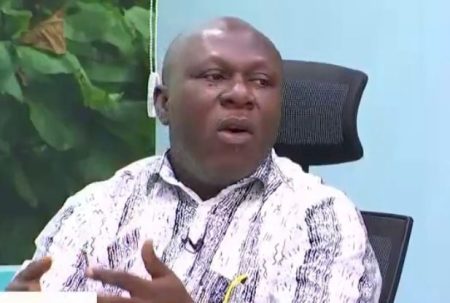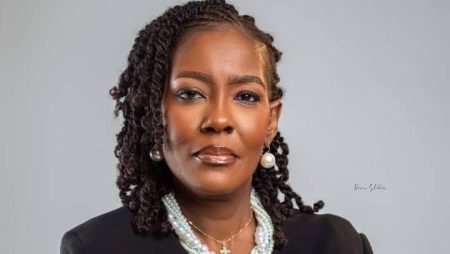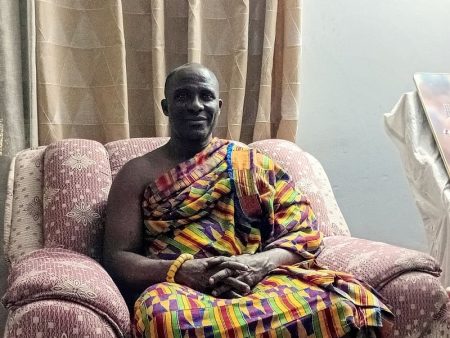The serene atmosphere of Bawku Senior High School was shattered on July 26, 2025, by the tragic and violent death of Master Mohammed Imoro Hakim Kundima, a final-year student. The young man’s life was cut short by unknown assailants, casting a pall of fear and grief over the school and the wider community. In response to this devastating event, and in an effort to restore peace and spiritual harmony, the traditional head of Kpalwega, Tengdana Akubilla Azubilla, led a solemn ritual on the school grounds. This ceremony involved the symbolic burial of an okro stick, representing the interment of violence and negativity, alongside traditional libations and the sacrifice of a red cock, a red goat, and a pot of pito. These offerings were intended to appease the gods and beseech their protection over the school, its students, and staff.
The ritual itself was a powerful expression of the community’s deep-seated desire for peace and security. Tengdana Azubilla, in his address during the ceremony, appealed to those responsible for the violence to respect the sanctity of educational institutions. His words echoed the sentiment that schools should be havens of learning, not battlegrounds, and that the cycle of violence needed to be broken. The symbolic act of burying the okro stick served as a potent reminder of the need to bury the hatchet and move forward towards a future free from violence and bloodshed. The ceremony also served as a rallying point for the community, uniting them in their grief and their shared hope for a peaceful resolution.
Following the ritual cleansing, Rev. Bukari Abugbilla, the headmaster of Bawku SHS, announced the scheduled return of final-year students on August 4th to prepare for and commence their West African Senior School Certificate Examination (WASSCE). Acknowledging the heightened anxieties of parents and guardians, Rev. Abugbilla reassured them of the robust security measures implemented at the school. He emphasized the presence of both police and military personnel on the school grounds, underscoring the commitment to ensuring a safe and conducive environment for students to focus on their upcoming examinations. The message was clear: the school was committed to providing a secure space for learning, allowing students to put the tragic incident behind them and concentrate on their academic pursuits.
However, the issue of student safety sparked debate within the community. Elvis Agooma, the Assembly Member for the Kpalwega Electoral Area, voiced strong opposition to any suggestions of relocating students from Bawku SHS. He argued that such a drastic measure would be disruptive to the students’ education and potentially expose them to new and unforeseen risks in unfamiliar environments. Agooma emphasized the existing security infrastructure and the community’s collective responsibility to protect the school and its students. He maintained that relocating students would be a counterproductive measure, undermining the efforts already in place to safeguard the school. His stance reflected a commitment to facing the challenges head-on rather than seeking escape.
The tragic killing of Master Mohammed Imoro Hakim Kundima underscored the volatile security situation in the region and the vulnerability of educational institutions caught in the crossfire. The incident served as a stark reminder of the devastating consequences of violence and the urgent need for peace and reconciliation. The community’s response, however, demonstrated their resilience and their determination to protect their children and their future. The ritual cleansing performed by Tengdana Azubilla and the elders represented not only a spiritual plea for peace but also a powerful symbolic act of defiance against violence.
The traditional ritual, combined with the reinforced security measures and the community’s resolve to maintain the school’s operations, sent a powerful message of unity and hope. The incident, while tragic, served as a catalyst for the community to reaffirm its commitment to education and its determination to create a safe and secure environment for its students. The symbolic burial of the okro stick represented the burial of fear and the planting of seeds of hope for a future where education can flourish without the threat of violence. The community of Kpalwega chose to confront the tragedy head-on, choosing resilience over retreat, and demonstrating their unwavering commitment to the future of their children. They chose to believe in the power of their collective action and their shared hope for a peaceful future.



